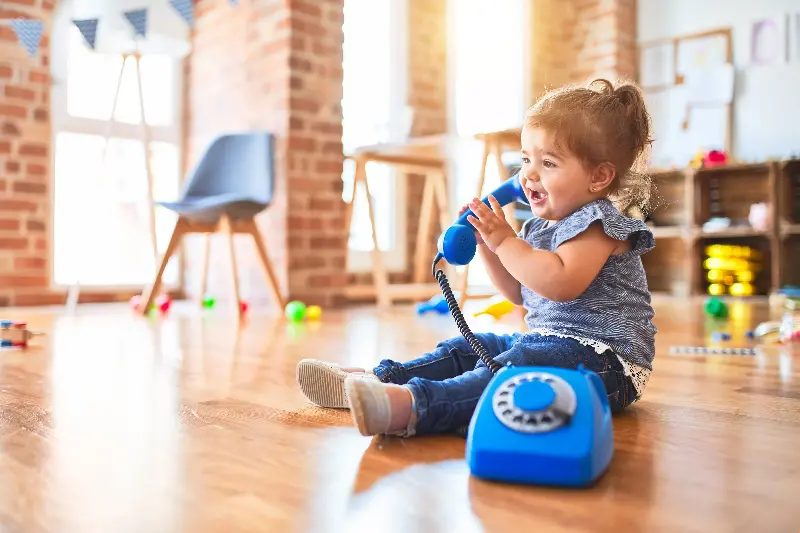
At age two, your toddler is on the brink of an exciting language explosion. The sudden burst in vocabulary, simple sentences, and growing ability to express needs can be as joyful for parents as it is for little ones. But how can you give your child’s language journey an extra spark? Unlocking your toddler’s voice can be both fun and rewarding with engaging games and clever communication techniques. Explore these fascinating ways to turn ordinary moments into powerful language-learning opportunities.
The Science Behind Toddler Talk
A toddler’s brain is primed for language. Between ages one and three, children learn words at an astonishing pace — sometimes up to ten new words a day. Studies show that rich, interactive conversations lay down neural pathways vital for future academic success and social confidence. Kids who have back-and-forth exchanges with caregivers tend to have stronger vocabularies and language comprehension than those exposed to passive language (like overhearing adults or listening to a TV).
But not all talk is created equal. Responsive, playful interactions win every time over rote instructions. Toddlers thrive when adults listen carefully, repeat new words, and provide space for the child to respond in their own time and way.
Everyday Moments, Endless Opportunities
You don’t need fancy flashcards or complicated apps to foster language growth. Everyday routines hold a treasure trove of chances to chat and connect. Narrate what you do as you go about your day: “We’re washing your hands—splash, splash! Now let’s dry them with the towel.” This running commentary invites your toddler into a world where actions, objects, and feelings all have names.
Grocery shopping becomes a naming adventure: “Here’s a shiny red apple. Can you find the bananas?” Mealtimes are perfect for sharing tastes, textures, and choices: “Do you want crunchy carrots or smooth peas?” The more descriptive language you sprinkle in, the richer your child’s word bank becomes.

Brilliant Games to Boost Language
Play is not only the work of childhood—it’s the workshop for language learning. Some of the very best language games need nothing more than your attention and a little imagination.
Pretend play is a superstar in language development. Set up a toy kitchen and cook up imaginary meals, assigning names and actions: “Let’s stir the soup. Yum, it’s hot!” Dolls and animal toys make perfect conversational partners, encouraging toddlers to try out new words and phrases in a low-pressure, fun way.
Classic nursery rhymes and songs, like “Twinkle Twinkle Little Star” or “The Wheels on the Bus,” are packed with repetitive language and often include hand motions. Singing together encourages memory and speech, while actions reinforce word meanings. Don’t worry if your toddler can’t sing along yet—join in enthusiastically, and eventually, you’ll notice them filling in words or even inventing their own verses.
Turn picture books into a two-way street. Instead of simply reading, pause and point to objects, ask questions, and let your toddler tell part of the story: “What does the doggy say?” or “Where’s the ball?” Choose books with big, bright pictures and simple text, and don’t shy away from repeating favorites again and again—repetition cements vocabulary.
Techniques That Tap Into Your Toddler’s Potential
A few simple tweaks to the way you communicate can work wonders in unlocking more words.
Slow down and wait. After you ask a question or make a comment, pause for a few seconds. Two-year-olds often need extra time to process and respond. It can be surprisingly effective to just look expectant and wait—soon, your toddler may surprise you with a word or gesture.
Expand and model new language. If your child says, “Car!” repeat it back but build on it: “Yes, red car! The car goes beep beep.” Children learn more when they hear their utterances echoed and gently extended.
Avoid correcting or pressuring. Instead of saying, “No, say it like this…” simply model the correct version. This keeps the atmosphere positive and stress-free.
Listen actively and celebrate attempts. Respond with enthusiasm to every effort, even if it’s just a babble or gesture. A big smile and, “I love how you told me!” encourages further tries.
Harnessing the Power of Playgroups and Story Time
Social settings are like super-charged language labs. Interacting with other children provides a real boost, inspiring new words and phrases that sometimes only peers can ignite. Look for local playgroups, library story times, or toddler classes where your child can watch and join in with others.
If you don’t have formal options nearby, casual meetups at the park or playdates can offer the same benefits. Even brief exchanges—sharing toys, calling out for a turn, listening to another child sing—contribute to an expanding vocabulary and social ease.
When to Seek Extra Support
It’s important to remember that every child develops at their own pace, and a wide range of what’s “normal” exists. However, if your two-year-old rarely attempts to communicate, uses only a handful of words, or doesn’t point or gesture to express needs and interests, consider a chat with your pediatrician or a speech-language specialist. Early intervention is highly effective and can ensure your child has the support they need for a thriving future.
Unlocking your toddler’s voice is a journey best taken with warmth, patience, and lots of laughter. Each day is a new opportunity to play, talk, and celebrate the remarkable steps your little one takes toward becoming a confident communicator.
